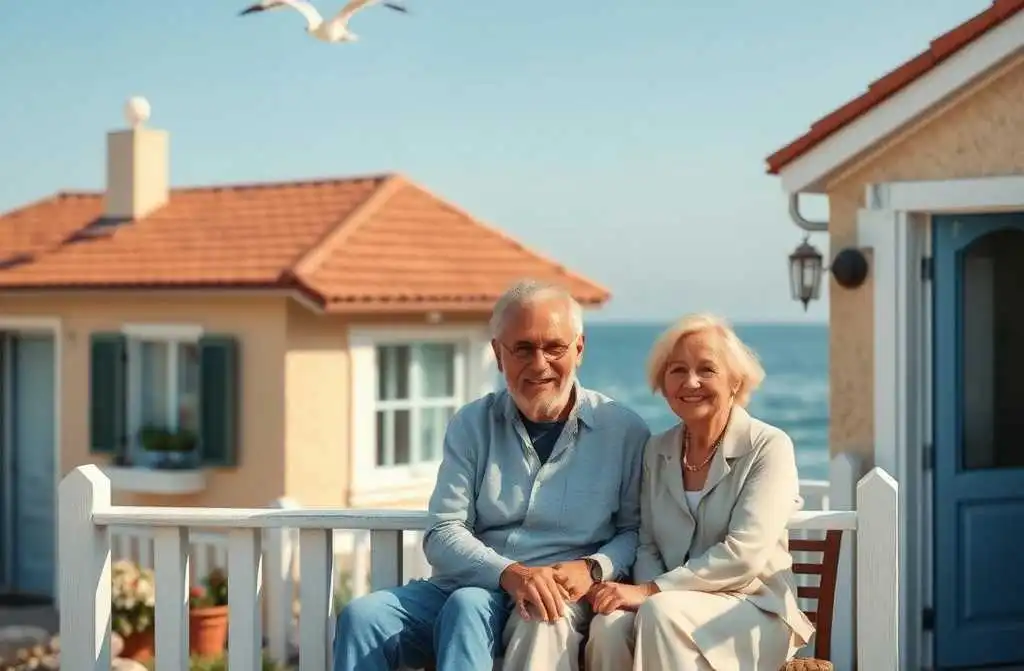After buying a house by the sea, our relatives suddenly remembered we existed.

I never would have imagined that someone could accuse my husband and me of being arrogant. We’ve always lived a simple life, never showing off or trying to stand out. We’re both nearing 50, and this is our second marriage. I never had children — it just happened that way — but my husband has an adult daughter. We’ve been together for almost ten years, and during that time, we’ve managed to build a warm, peaceful, and harmonious home.

Alfonso lived in a house on the outskirts of the city, while I lived in an apartment downtown. After we got married, I moved into his house, and it turned out to be the best decision. I quickly fell in love with country life: calm, serene, and connected to nature. We weren’t social butterflies — we rarely visited anyone, and few came to visit us. The only frequent visitor was Alfonso’s daughter, María, with whom I developed a close and affectionate bond.
Shortly after the wedding, we decided to take a trip to the coast. That getaway left a deep impression on us. The sea breeze, the sound of the waves, the endless beaches… it all felt like a slice of paradise. That’s when the idea came to us: what if we moved near the sea when we retired? It felt like a distant, almost impossible dream — but fate had other plans.
Unexpectedly, one of Alfonso’s uncles passed away and left him a three-bedroom apartment in the city. We saw this as a chance to make our dream come true. We decided to sell the inherited property, quit our jobs, and move to a coastal town. We asked María to sell Alfonso’s old house. She quickly found buyers and transferred part of the money to us. The rest, my husband decided to give to his daughter as a gift.
And that’s how we began a new life in a charming little house by the sea. We found jobs easily, and our daily routine became lighter, calmer, and more pleasant. However, that peace didn’t last as long as we’d hoped. As soon as our relatives heard about our move, they started showing up: brothers, sisters, uncles, aunts, and even distant relatives we barely remembered.
At first, we were happy to welcome visitors. But we soon noticed an annoying pattern. Many came unannounced, empty-handed, expecting full hospitality. They wanted free lodging, meals, attention, and entertainment. And when they left, we were left with the mess, piles of linens to wash, and empty cupboards.
The worst part was when they brought children — and even grandchildren — without telling us in advance. Our house had become a kind of free guesthouse. Alfonso and I started feeling exhausted and taken advantage of.
That’s when we decided to set boundaries. We continued to warmly welcome close relatives, like Alfonso’s sister with her daughter and María with her family. They always let us know ahead of time, brought food, and helped around the house. But to the others, we made it clear: we could no longer accept surprise visits or provide everything like before.
This decision caused a wave of outrage. People started calling us stuck-up, saying we had become arrogant and were no longer the same. But we felt no guilt. When we lived in the countryside, those same people never cared about us. Now that we had a house by the sea, they suddenly remembered we existed.
Alfonso and I have no regrets about the decision we made. Our home is our sanctuary, and we have every right to decide who we welcome and when. Life by the sea has taught us to enjoy the little things: morning walks on the beach, golden sunsets, the soothing sound of the waves. And we won’t let anyone disturb the peace and harmony we’ve worked so hard to build.





